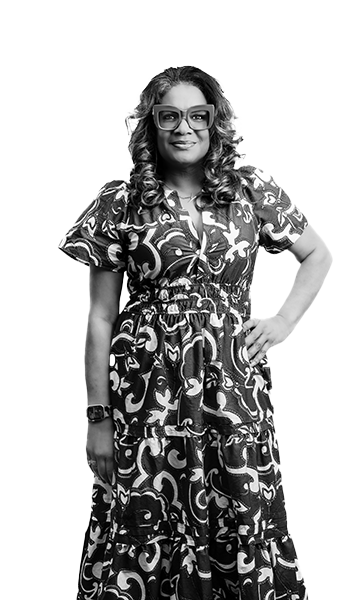
Knieba Jones-Johnson
Director, University Counseling Center
Knieba Jones-Johnson promotes well-being at Saint Louis University by expanding and extending the services of the University Counseling Center to reach more students than ever. She also co-leads 博彩网址大全’s JED Task Force initiative to improve student mental health, substance misuse and suicide prevention programs.
Jones-Johnson’s work helps students understand that mental health is integral to their overall well-being — and exemplifies 博彩网址大全’s commitment to care for the whole person.
As a licensed marital and family therapist who worked for more than 25 years with marginalized communities and individuals with complex trauma, what made you choose a university setting?
Emerging adulthood is one of the most challenging and pivotal periods of a person's life, given the array of developmental tasks, the complicated process of self-discovery and the heaviness of social pressure. For university students, these things occur while they are simultaneously navigating coursework, and preparing themselves for the workforce and independent living.
How is the University Counseling Center (UCC) helping students navigate these challenges?
Students seeking services at the UCC often do so after recognizing that they do not have to carry the weight of depression, anxiety, trauma, grief, etc., on their own. As we continue to eradicate the stigma often associated with help-seeking, students feel more comfortable and empowered to lean into the idea of processing difficult experiences and stress alongside empathic and non-judgmental professionals.
We embedded a therapist at the law school, the medical school and in the athletics department. We expanded our hours to be more accommodating on evenings and weekends. We developed group counseling opportunities that reflect the needs of the student community and created several wellness spaces across campus, including a garden, a music space in the library and an affinity space for medical students.
How do you get students to cross the UCC’s threshold?
This has been a No. 1 priority of mine, whether that be speaking to classrooms, offering workshops, attending student events or co-sponsoring activities with other departments. We work tirelessly to help students understand that mental health is health and not something separate from their overall well-being.
What is a mental health challenge for students that people may not expect?
Quite a few students are dealing with significant interpersonal violence and complicated trauma histories. I also believe the larger community doesn’t fully understand the impact that systemic issues – such as a polarized political climate, social injustices, poverty, an unstable economy and racism – have on the mental health of students.
How do you know the UCC is having an impact on student lives?
I was in Busch Student Center, and a student asked if I was director of the UCC. After I said yes, the student expressed to me that they thought I was doing a great job, appreciated me hiring therapists of color and most importantly, extending ourselves to students in a way where our presence was being felt. The student said, "Back in the day, we never really saw anyone from the UCC. Now I see you all over the place. I heard what you said about not picking up our phones first thing in the morning and doing something like meditating instead. I’ve been trying it for a few days, and I can tell you that I feel different. I feel better."